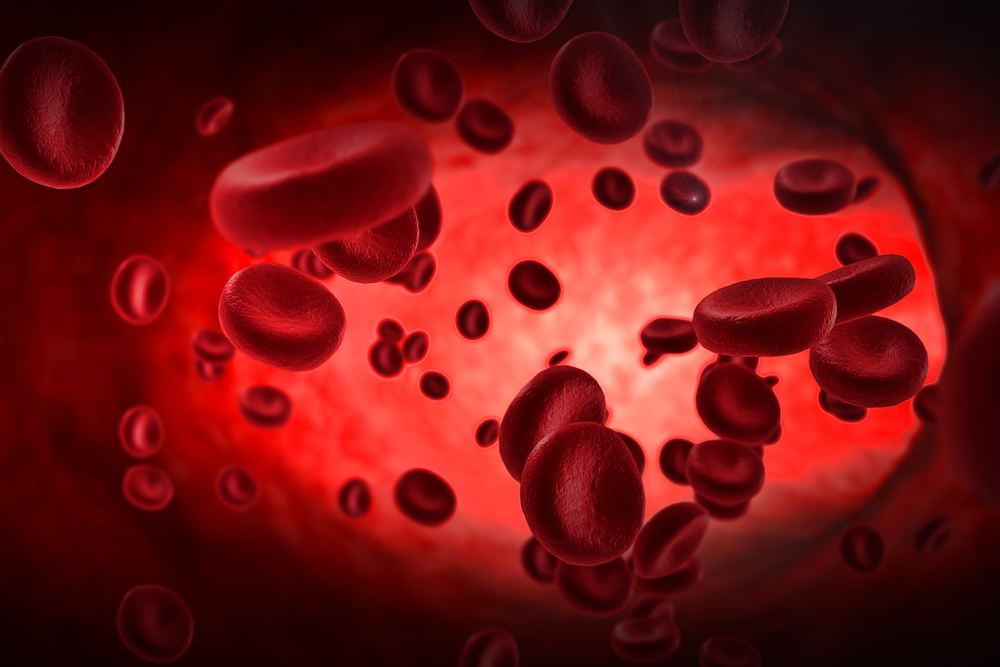Preliminary Data Further Show MarzAA’s Potential to Prevent Bleedings
Written by |

Clinical data from the ongoing Phase 2/3 trial data evaluating MarzAA (marzeptacog alfa activated) in patients with Hemophilia A or B with inhibitors continues to demonstrate the treatment’s potential to prevent bleedings.
The most recent trial results were discussed at the 12th Annual Congress of the European Association for Haemophilia and Allied Disorders (EAHAD) in Prague.
Howard Levy, PhD, chief medical officer of Catalyst Biosciences, provided an update on the trial advances in an oral presentation, “Phase 2/3 Trial of Subcutaneous Engineered FVIIa Marzeptacog Alfa (Activated) in Hemophilia A or B with Inhibitors: Pharmacokinetics, Pharmacodynamics, Efficacy and Safety.”
MarzAA is a potent Factor VIIa prophylactic agent designed by Catalyst researchers to achieve long-term prevention of bleeding episodes in people with hemophilia with inhibitors, acquired hemophilia and other bleeding disorders. It combines higher clot-generating activity and longer activity at the site of bleeding, resulting in enhanced efficacy.
The investigational therapy is being tested in an ongoing Phase 2/3 trial conducted at nine sites across Armenia, Georgia, Poland, Russia, and South Africa. No longer recruiting, the study enrolled 12 participants, seven of whom have completed dosing. Two others are currently dosing; the rest are completing screening.
The patients received daily subcutaneous injections of 30 micrograms of MarzAA per kg of body weight for 50 days. If they still experienced bleeding events, the dose would be increased, and the protocol repeated until a maximum of 120 μg/kg.
This group of patients had a mean annualized bleed rate (ABR) of 19.0 (ranging between 12.2 and 26.7) and experienced a mean 12.2% of their days with bleeding events before the treatment.
The seven patients who have completed dosing showed clinically significant reduction in ABR, with five patients having no bleeds (traumatic or spontaneous) at their final dose level. The median proportion of days with bleeding for these seven patients before the treatment was 11.0%, which reduced to a median of 1.0% during the treatment period.
After more than 450 days of subcutaneous injections of MarzAA, only six adverse reactions at the injection site were reported in two participants. These included moderate swelling and mild or moderate redness that resolved. So far, no antibodies against MarzAA have been detected.
“The positive data from our clinical trial demonstrates clinical proof of concept for MarzAA as a subcutaneous treatment option for individuals with hemophilia A or B with inhibitors,” Nassim Usman, CEO of Catalyst, said in a press release.
During the trial, researchers also evaluated the potential of MarzAA to improve hemophilia patients’ quality of life (QoL).
Before the trial started, the patients had a mean QoL score of 44.8, as determined by the Hemophilia Quality of Life Questionnaire for Adults (Haem-A-QoL), which is much worse than the 29.3 score reported in patients with severe hemophilia but without inhibitors recruited into a long-term prophylaxis trial (A-LONG, NCT01181128).
After as few as 50 days of daily subcutaneous treatment with MarzAA prompted improvements in Hem-A-QoL scores, as well as in physical activity with the Hemophilia Activity List (HAL), compared with baseline.
These interim results were presented in a poster, “Can Effective Bleeding Control Improve QoL For Haemophilia Patients with Inhibitors?,” during the EAHAD annual congress.
These preliminary results highlight “the potential for MarzAA as a safe and effective subcutaneous treatment to reduce spontaneous bleed rates and improve the quality of life of affected individuals,” Usman said. “We are pleased to announce that we have completed enrollment and look forward to providing topline results in the third quarter of 2019.”
Catalyst is also developing a gene therapy for the treatment of hemophilia B. The new agent was based on the design of next-generation engineered coagulation Factor IX, dalcinonacog alfa, which has demonstrated increased potency than an available agent in a Phase 1/2 study (NCT03186677).
The novel FIX-CB2679d-GT version of the gene therapy tested in FIX-deficient hemophilia B mice increased the levels of the clotting factor in a sustained manner and with increased efficacy. Upon treatment, the mice showed enhanced FIX activity and significantly reduced bleeding time.
These results suggest that FIX-CB2679d-GT could be used to develop a novel gene therapy able to achieve “a more rapid and robust hemostatic correction of bleeding and reduction in blood loss” for patients with hemophilia B.
These preclinical data were described in a poster, “AAV Based Hemophilia B Gene Therapy in Mice Using FIX-CB2679d-GT,” at the EAHAD annual congress.


